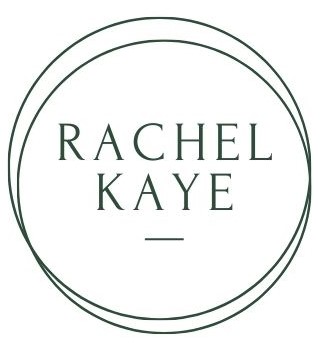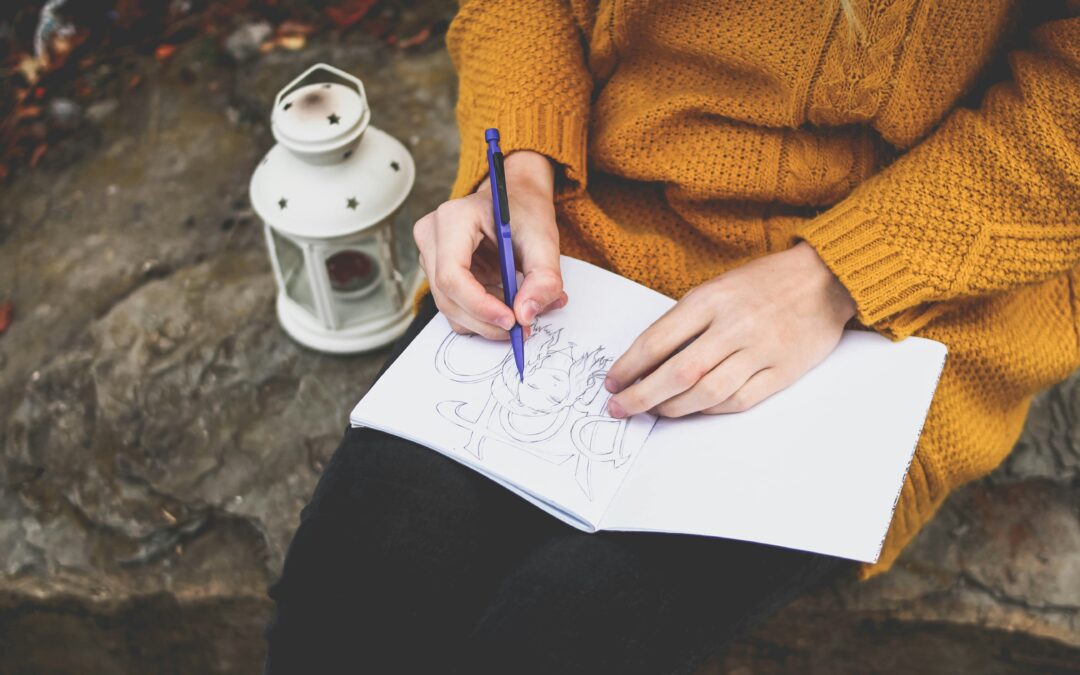There’s something about making art that always teaches me something about perfectionism.
This summer I thought I’d try and create a new sketching habit.
I had a vision of myself with my sketchbook in my garden in the sunshine. I’d imagined a relaxing experience, drawing away and getting into the flow. But the reality was very different.
My inner critic, who, after years of work I thought I had a fairly decent handle on, came out in abundance. This can often be the case when you do something new that you’re not very good at (yet). Carol Dweck’s work on fixed vs growth mindset* has been really helpful to me in this regard, and I’ve (mostly) moved away from labelling myself as ‘good’ or ‘bad’ at art and seeing it as a skill that I can work on and improve if I work at it.
For many adults, drawing and art tends to be linked to childhood. This is because during this period we were regularly creative. But by contrast, most of us don’t do things like draw or paint for fun as adults. Because of this creating as an adult can function a bit like time travel in that it brings up experiences, feelings and beliefs about ourselves that we had when we were younger.
Even though this all made sense to me, the experience was tense and unpleasant and I didn’t enjoy it.
At this point it was a toss up between shelving the whole thing or changing tactics, so, inspired by sensorimotor therapy*, I decided to create a few experiments to see how this affected things.
Firstly, I changed the amount of time I spent drawing. I’d initially blocked out an hour to draw, thinking it’d be better to have a good run at it and really concentrate. However, after my first experience, I suspected this might be too much. So, I experimented with taking the amount of time I drew down to ten minutes and instead tried to incorporate these brief sessions daily (which felt like an easier ask, as I can often lose this amount of time to my phone and not really notice). Drawing for this amount of time felt much more manageable, which retrospectively made sense. Drawing is a form of mindfulness and directed concentration. You wouldn’t expect yourself to meditate for an hour straight out of the gate. But I realised my vision of how this experience ‘should’ be was blinding me to what was actually going to be helpful.
The other lesson came as a bit of a surprise. I’d been following some exercises and one involved practicing shading on a ‘simple drawing of an organic blob/cloud’. I was drawing a poop. At first I was so uninspired by this exercise that I nearly skipped it. There was no way I was going to make this ‘look good’, or really look like anything (other than a poop, which didn’t seem like that much of an achievement). But ultimately this ended up being profoundly liberating for me. I finally found myself getting into the flow of a relaxed sketching practice I’d initially imagined. It turned out that the belief that I had to get ‘something right’ and make it ‘look good’ had been what was holding me back from enjoying the process. Temporarily taking the pressure off had done wonders and allowing me to play and relax, which is essential for creativity (but which perfectionism can make hard to access).
Lessons from art on dealing with perfectionism:
-Play around with the amount of time you spend on the activity. Find out what works for you, not what other people are doing or what you ‘should’ be doing. Sometimes smaller chunks of time make it easier to be creative every day, rather than when you’ve got hours to dedicate to it (which might never happen)
– Sometimes taking the pressure off can work wonders. You don’t have to show anyone else or do anything with what you produce. Can you allow yourself to make something that you know won’t look ‘good’ whilst you’re learning a skill? Then when your inner critic pipes up with some kind of disapproving remark on your output you can be like ‘yeah, I know, that’s the point.’
– Expect your inner critic. When you do something new or something you’re not good at (yet), your inner critic is likely to have some thoughts on this. This can be an old protective response designed to help defend you from criticism from others or ‘embarrassing’ yourself. You don’t have to believe these comments and you don’t have to let them stop you. Therapy can be really helpful for changing your relationship with your inner critic. If you’re interested in finding out more about working with me to stop your perfectionism controlling you or holding you back get in touch.
And if you’ve read this far you’ll be rewarded with my original ‘poop drawing’. Enjoy!

Further reading/watching
*Dweck, C. Developing a Growth Mindset https://www.youtube.com/watch?v=hiiEeMN7vbQ
* Sensorimotor Psychotherapy: A Somatic Path to Treat Trauma






Recent Comments